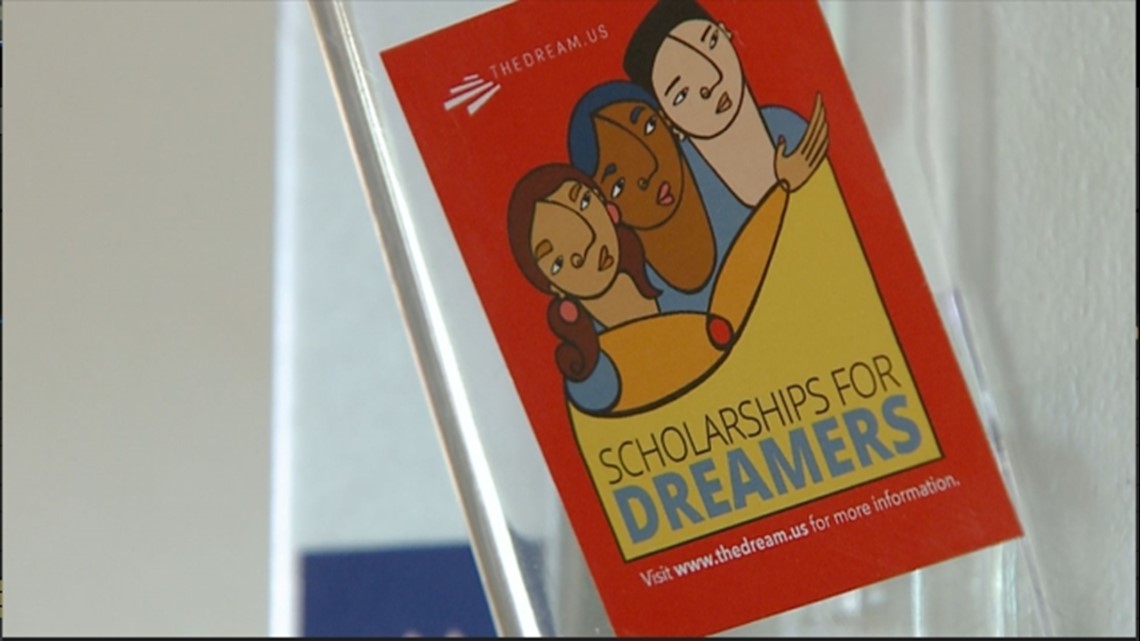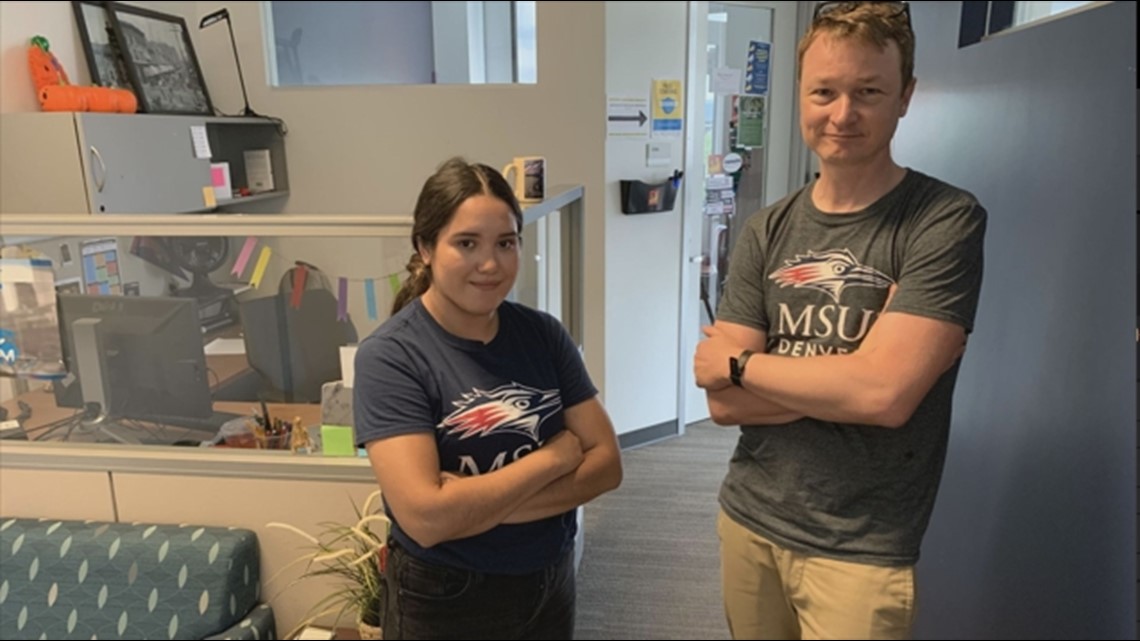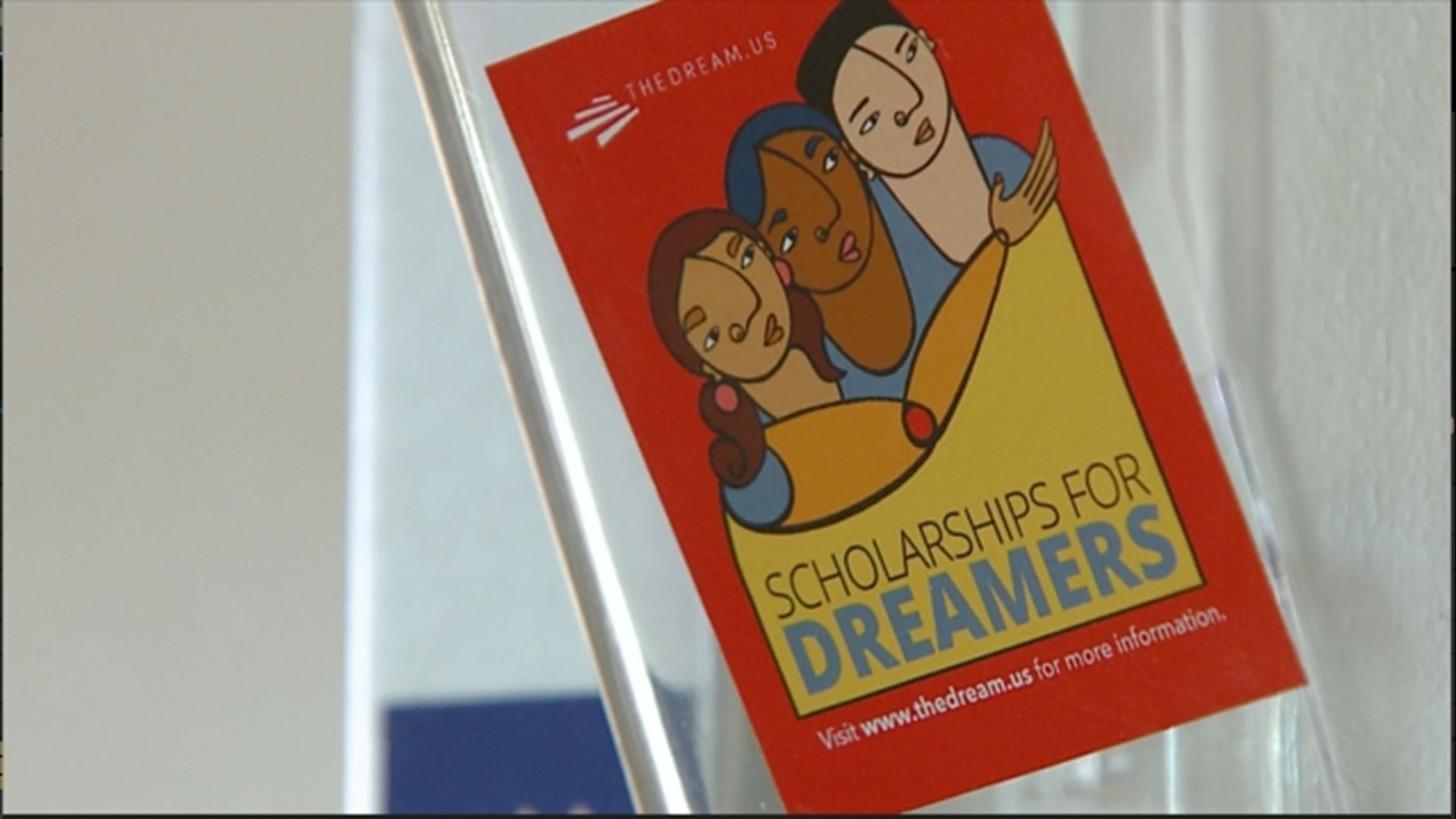COLORADO, USA — On Wednesday, the 5th U.S. Circuit Court of Appeals heard oral arguments about the legality of the Deferred Action for Childhood Arrivals program, also known as DACA.
Last year, a federal judge ruled that it was illegal, with President Joe Biden appealing that ruling.
On the same day oral arguments were heard, a crowd gathered outside of the Colorado state capitol in support of DACA.
The program, started in 2012 by the Obama administration, grants legal immigration status to people brought to the U.S. without authorization as children.
It's very impactful for kids who qualify, giving them a chance to go to college and work as well.


Gregor Meider, director of MSU Denver's Immigrant Services Program, has been with the program for around seven years. He estimates that when he started, there were around 160 to 170 students utilizing the program. Now, there are about 500.
"We have unfortunately had a way to test out what things look like for a campus when really impactful news comes out about DACA -- who needs to be there for those students," he said. "And we are indeed thinking about what kinds of events and resources we need to offer as soon as negative news about DACA does come out."
The program offers peer mentor sessions to make sure students who may be undocumented have a plan, proper paperwork, and more. The program's peer mentors and student success specialists are primarily Hispanic or Latino.
"It's really important for students to see themselves represented in the staff that they're working with," Meider said.
Meider estimates that around 80% of students they help speak Spanish or have undocumented or temporary protected status.
He notices the toll the constant uncertainty about DACA's future takes on a student.
"Students not only have to struggle with class assignments and with busy schedules, with working, with supporting families, but also the uncertainty about where will this country go in terms of immigration regulation and what is their place going to be," Meider said.
In June, the university reported that it had 332 undocumented students last year under the ASSET law, which allows eligible undocumented students to pay in-state tuition.


Nayeli Sanchez is going into her fourth year at MSU Denver, and is a peer mentor for the immigration services program.
"Because students are like, 'okay, well, where can I go for legal advice?' Or 'what can I do if this changes?'" she said. "But even if you have DACA, you're kind of planning your life out for two years."
She said the upcoming court hearings have students wondering when there will be a permanent solution, such as the opportunity to apply for permanent residency.
Sanchez came to the U.S. from Mexico with her family when she was around 2 years old, she said.
"And I think what also helps is that most of us are Spanish speakers, so their families are able to come in, ask the questions that they want to ask too," she said.
When it comes to helping students, she believes representation matters.
"So it's having to have someone go through all those barriers already lead you to an easier path," she said.
SUGGESTED VIDEOS: Education stories from 9NEWS

